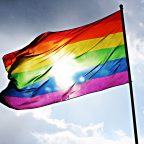
On nationalism: Unfortunately, this is a worldwide problem
This guest post is written by Kate Harveston, a writer and political activist from Pennsylvania. She blogs about culture and politics, and the various ways that those elements act upon each other. For more of her work, you can follow her on Twitter or subscribe to her blog, Only Slightly Biased.
America’s news media has spent the last six months captivated by a rash of white nationalist activity. It’s easy to point a finger at the surreal result of the USA’s democratic process — the election of President Donald Trump — as the cause for all this hateful activity. The truth is, though, that nationalist sentiment has been swirling around the global geopolitical conversation for quite some time now.
Continue reading “On nationalism: Unfortunately, this is a worldwide problem”








